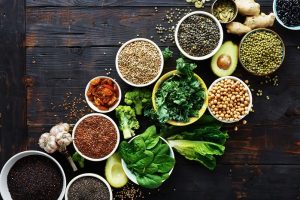Beans in Blue Zones: The Fountain of Youth Diet?

What are Blue Zones?
Blue Zones are fascinating regions around the globe where people experience extraordinarily high levels of longevity and health. These areas include places like Ikaria in Greece, Sardinia in Italy, Okinawa in Japan, Nicoya in Costa Rica, and Loma Linda in California. Inhabitants of these regions are not just living longer; they’re thriving! What’s their secret? Research highlights several common lifestyle factors that contribute to their longevity, such as:
- Beans in Blue Zones: The Fountain of Youth Diet?
- What are Blue Zones?
- The Fountain of Youth Diet
- Beans and Longevity
- Role of Beans in Blue Zones
- Benefits of Beans in Diet
- Types of Beans in Blue Zones
- Black Beans
- Lentils
- Nutritional Value of Beans
- High in Protein
- Rich in Fiber and Antioxidants
- How to Incorporate Beans in Your Diet
- Bean-based Recipes
- Tips for Cooking with Beans
- Health Benefits of Beans
- Heart Health
- Weight Management
- Beans and Age-related Diseases
- Prevention of Diabetes
- Reduced Risk of Cancer
- Beans and Gut Health
- Improving Digestion
- Maintaining a Healthy Gut Microbiome
- Beans as a Sustainable Food Source
- Environmental Impact
- Role in Plant-based Diets
- Healthy diet rich in plant-based foods
- Strong social ties and community involvement
- Regular physical activity
- Stress management techniques
The enrichment of everyday life in these zones leads to a lower incidence of chronic diseases.
The Fountain of Youth Diet
One popular approach that has emerged from studying Blue Zones is known as the “Fountain of Youth Diet.” This diet focuses on whole, unprocessed foods, with an emphasis on:
- Fruits and vegetables
- Whole grains
- Legumes, especially beans
By adopting this nourishing dietary pattern, many find not only improved health but also a zest for life that feels reminiscent of youth. By weaving in these dietary choices, individuals can unlock their potential for longer, healthier lives.
Beans and Longevity
Role of Beans in Blue Zones
In examining the dietary habits of Blue Zones, one ingredient consistently stands out: beans. These nutrient-dense legumes serve as a staple in the diets of many long-lived communities. From hearty black beans in the Nicoya Peninsula to the beloved lentils of Sardinia, beans are not just a food choice; they’re a lifestyle. People in Blue Zones consume beans regularly, often making them the cornerstone of their meals. This ease of incorporation speaks to their versatility:
- Soups and stews
- Salads and spreads
- Side dishes or main courses
By consistently including beans in their diets, individuals enjoy a variety of health benefits while enhancing the flavor and texture of their meals.
Benefits of Beans in Diet
The benefits of beans extend far beyond their tasty qualities. These legumes are:
- Rich in protein: a vegetarian source that supports muscle health.
- High in fiber: promoting digestive health and aiding in weight management.
- Low in fat: contributing to heart health by reducing cholesterol levels.
Just think of beans as nature’s little powerhouses for longevity. Incorporating them into everyday meals isn’t just a dietary choice; it’s a pathway to a longer, healthier life.
Types of Beans in Blue Zones
Black Beans
Among the various beans celebrated in Blue Zones, black beans hold a special place, particularly in the diets of those living in the Nicoya Peninsula. These small, shiny legumes are packed with flavor and nutrition, making them a favorite in traditional dishes. For many locals, black beans are a staple at every meal, whether in breakfast burritos or hearty stews. Their benefits are numerous:
- High in antioxidants: Protecting cells from damage.
- Rich in protein and fiber: Supporting muscle health and digestion.
- Versatile: Easily incorporated into salads, soups, or side dishes.
Imagine savoring a delicious black bean soup, knowing it’s not just comforting but also contributing positively to your longevity!
Lentils
Another powerhouse bean featured prominently in Blue Zones, especially in Sardinia, is lentils. These tiny legumes are not only rich in nutrients but also incredibly versatile. Whether served as a main dish in a flavorful stew or tossed in a salad, lentils are a go-to source of nourishment. Key benefits include:
- Rapid cooking time: Perfect for busy lifestyles.
- High in iron: Supporting energy levels and overall health.
- Fiber-rich: Aiding digestion and contributing to heart health.
Incorporating lentils into daily meals can be as simple as adding them to a vegetable stir-fry or creating a hearty lentil soup. Each serving not only satisfies hunger but also promotes a healthier, longer life—just another step towards embracing the essence of the Blue Zones!
Nutritional Value of Beans
High in Protein
One of the standout features of beans is their impressive protein content, making them an essential component of a plant-based diet. Beans are often hailed as nature’s protein source, appealing especially to those looking to reduce meat consumption. A typical serving of beans can provide:
- 15-20 grams of protein: Comparable to that of meat.
- Essential amino acids: Critical for muscle repair and overall health.
For individuals like my friend, who transitioned to a plant-based diet, beans became the go-to food for satisfying protein needs without compromising on taste or nutrition. Whether in a refreshing bean salad or a savory chili, the protein-packed goodness keeps energy levels high!
Rich in Fiber and Antioxidants
In addition to protein, beans are a treasure trove of dietary fiber and antioxidants. A single cup of beans can deliver anywhere from 13 to 20 grams of fiber, which is vital for digestive health. Benefits include:
- Promoting gut health: Helping prevent constipation and regulating blood sugar.
- Enhancing heart health: Contributing to healthy cholesterol levels.
- Offering antioxidants: Protecting the body from oxidative stress and inflammation.
Integrating a variety of beans into daily meals not only satisfies hunger but also ensures a wealth of nutrients, acting as a pillar of a healthy, longevity-promoting diet. Whether it’s through soups, salads, or sides, beans are indeed a nutritional powerhouse!
How to Incorporate Beans in Your Diet
Bean-based Recipes
Incorporating beans into your diet can be a delightful culinary adventure! There are countless bean-based recipes that are not only nutritious but also incredibly satisfying. Here are a few favorites to get you started:
- Black Bean Tacos: Mash black beans with spices and serve in warm tortillas with your choice of toppings like avocado, salsa, and cilantro.
- Lentil Soup: A hearty blend of lentils, vegetables, and spices; perfect for a comforting meal.
- Chickpea Salad: Toss chickpeas with cherry tomatoes, cucumbers, and a zesty lemon dressing for a refreshing side dish.
These recipes are simple to prepare and allow beans to shine while also providing essential nutrients.
Tips for Cooking with Beans
Here are some handy tips to maximize flavor and texture when cooking with beans:
- Soak dry beans overnight: This reduces cooking time and makes them easier to digest.
- Flavor in the cooking water: Add herbs, garlic, or onions to the cooking liquid for enhanced taste.
- Experiment with spices: Don’t hesitate to try different spices like cumin, paprika, or bay leaves to elevate your dish.
Just remember, beans are incredibly versatile—so let your creativity flow in the kitchen! Whether you’re looking to create simple side dishes or hearty main courses, beans can effortlessly step into the spotlight, adding both nutrition and flavor to your meals.
Health Benefits of Beans
Heart Health
When it comes to heart health, beans are truly a superhero food. Rich in soluble fiber, they help to reduce cholesterol levels, which can lower the risk of heart disease—a critical consideration for many health-conscious individuals. Consider this:
- Lower cholesterol: The fiber in beans absorbs cholesterol in the intestines, preventing it from entering the bloodstream.
- Potassium-rich: Beans help to regulate blood pressure by promoting healthy blood flow.
I remember my grandmother used to make a large pot of bean chili every Sunday. Little did we know, those comforting family meals were also contributing to our heart health!
Weight Management
Beans also play a fantastic role in weight management. High in protein and fiber, they provide a feeling of fullness that helps curtail unnecessary snacking throughout the day. Key benefits include:
- Low in calories: Making them an excellent choice for satisfying meals without excessive calories.
- Regulating hunger hormones: The fiber content promotes stable blood sugar levels, preventing energy crashes that lead to cravings.
Next time you’re looking for a filling and nutritious meal, think of incorporating beans! They’re not just beneficial for the heart; they’re also allies in maintaining a healthy weight. If you haven’t yet added them to your diet, now is the perfect time!
Beans and Age-related Diseases
Prevention of Diabetes
When it comes to age-related diseases, beans shine as a powerful ally in preventing diabetes. Their low glycemic index means that beans are digested slowly, helping to maintain steady blood sugar levels. This is crucial for managing or even preventing type 2 diabetes, especially for those at risk. Consider these points:
- High in fiber: This helps slow down carbohydrate absorption, which contributes to stable blood sugar levels.
- Nutrient-packed: Beans provide essential vitamins and minerals, like magnesium, which plays a role in insulin sensitivity.
I know several friends who transformed their diets by incorporating beans, leading to better energy levels and improved blood sugar readings!
Reduced Risk of Cancer
Beans also contribute to a reduced risk of various cancers. Their rich antioxidant content helps fight oxidative stress, a significant factor in cancer development. Key aspects include:
- Phytochemicals: Compounds in beans may help inhibit the growth of cancer cells.
- Fiber content: A high-fiber diet is linked to a lower risk of colorectal cancer.
Incorporating beans into your meals is not just a delicious choice; it’s a proactive step toward safeguarding your health against age-related diseases. Whether in soups, salads, or stews, enjoying beans can really be beneficial for long-term well-being!
Beans and Gut Health
Improving Digestion
Beans are not only nutritious but also pivotal for improving digestion. Their high fiber content plays a crucial role in keeping the digestive system running smoothly. For many, incorporating beans into their meals is an easy upgrade. Consider the benefits:
- Soluble fiber: This helps to soften stool, making it easier to pass and reducing the likelihood of constipation.
- Digestive health: Regular consumption of beans can help alleviate symptoms like bloating and gas over time, enhancing overall comfort.
I recall my own journey of introducing beans into my meals; I found that my digestion significantly improved as I gradually added them to my diet!
Maintaining a Healthy Gut Microbiome
In addition to aiding digestion, beans are fantastic for maintaining a healthy gut microbiome. They serve as prebiotics—food sources that nourish the beneficial bacteria in our gut, promoting a balanced digestive environment. Key points include:
- Diverse fiber sources: Different types of fiber in beans can feed various beneficial bacteria, enhancing diversity.
- Antioxidant-rich: The antioxidants in beans help combat inflammation, supporting gut health.
Incorporating beans in your diet can be as simple as adding them to salads, soups, or stir-fries. By doing so, you’re not just enjoying delicious meals; you’re actively nurturing your digestive health and promoting a happy gut!
Beans as a Sustainable Food Source
Environmental Impact
Beans are not just a nutritional powerhouse; they also emerge as a champion in sustainable food sources. Their cultivation has a significantly lower environmental impact compared to many animal-based protein sources. For example, beans require less water and land to produce, making them an eco-friendly option. Consider these impactful points:
- Nitrogen-fixing: Beans enrich soil by fixing nitrogen, thereby reducing the need for synthetic fertilizers.
- Lower greenhouse gas emissions: Bean production results in fewer emissions when compared to livestock farming.
Witnessing the gradual shift towards more plant-based diets among friends and family has sparked conversations about sustainability, emphasizing the positive choices we can all make!
Role in Plant-based Diets
Incorporating beans into plant-based diets is an easy way to enhance sustainability while maximizing health benefits. They provide essential nutrients, including protein, iron, and fiber, making them an integral part of a vegetarian or vegan lifestyle. Key benefits include:
- Versatility: Beans can be used in various dishes, from salads to hearty stews, catering to diverse culinary tastes.
- Accessible and affordable: Beans are often a cost-effective protein source, making nutritious eating more achievable for everyone.
By embracing beans in our daily meals, we contribute to a more sustainable food system while enjoying delicious and healthful dishes that resonate with our values!





